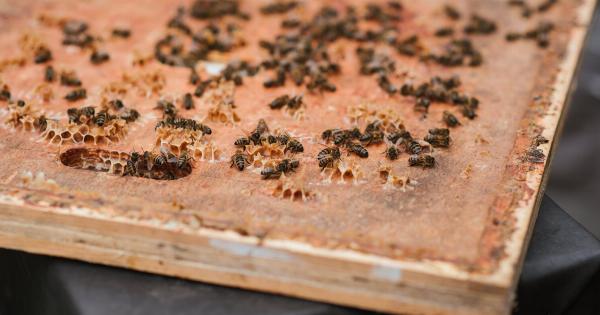A healthy pregnancy is important not just for the well-being of the mother, but also for the growth and development of the baby. Proper nutrition is crucial during this time as it can reduce the risk of complications during pregnancy and childbirth.
In fact, studies have shown that following a healthy diet can reduce the risk of complications by 32%. Here’s a guide to what you should eat during pregnancy to ensure a healthy baby.
1. Eat a variety of fruits and vegetables
Fruits and vegetables are packed with essential vitamins, minerals, and fiber that promote the development of a healthy baby. Eating a variety of fruits and vegetables can help you get the nutrients you need.
Aim to have at least five servings of fruits and vegetables each day. Fresh, frozen, and canned options are all good choices.
2. Choose whole grains
Whole grains, such as brown rice, whole-wheat bread, and quinoa, provide more nutrients and fiber than refined grains. They also help to regulate blood sugar levels, which can reduce the risk of complications like gestational diabetes.
Aim to include whole grains with every meal.
3. Get enough protein
Protein is important for the growth and development of the baby. It also helps to maintain and repair tissues in the mother’s body. Good sources of protein include lean meats, fish, eggs, beans, and lentils. Aim to have protein with every meal.
4. Include healthy fats
Healthy fats, such as those found in avocados, nuts, seeds, and fatty fish, are important for the development of the baby’s brain and nervous system. They also help to regulate hormones and reduce inflammation.
Aim to include healthy fats with every meal.
5. Limit processed and junk foods
Processed and junk foods are high in calories, sugar, and unhealthy fats. They provide little nutrition and can lead to weight gain and other complications during pregnancy. Avoid or limit these foods as much as possible.
6. Stay hydrated
Drinking enough water is important during pregnancy to support the development of the baby and maintain the mother’s health. Aim to drink at least eight glasses of water each day. Other good options include milk, 100% fruit juice, and herbal tea.
7. Take prenatal vitamins
Prenatal vitamins help to ensure that the mother and baby get all the nutrients they need, even if the diet is not perfect. Make sure to take a prenatal vitamin that includes folic acid, iron, and calcium.
8. Avoid alcohol, smoking, and caffeine
Alcohol, smoking, and caffeine can all have harmful effects on the baby’s development. Avoid or limit these substances as much as possible during pregnancy.
9. Eat frequent, small meals
Eating frequent, small meals throughout the day can help to regulate blood sugar levels and prevent nausea and vomiting during pregnancy. Aim to eat every two to three hours.
10. Listen to your body
Pregnancy can be unpredictable, and every woman’s body is different. Listen to your body and eat when you are hungry. If you experience nausea or other complications, work with your healthcare provider to find a diet that works for you.




























